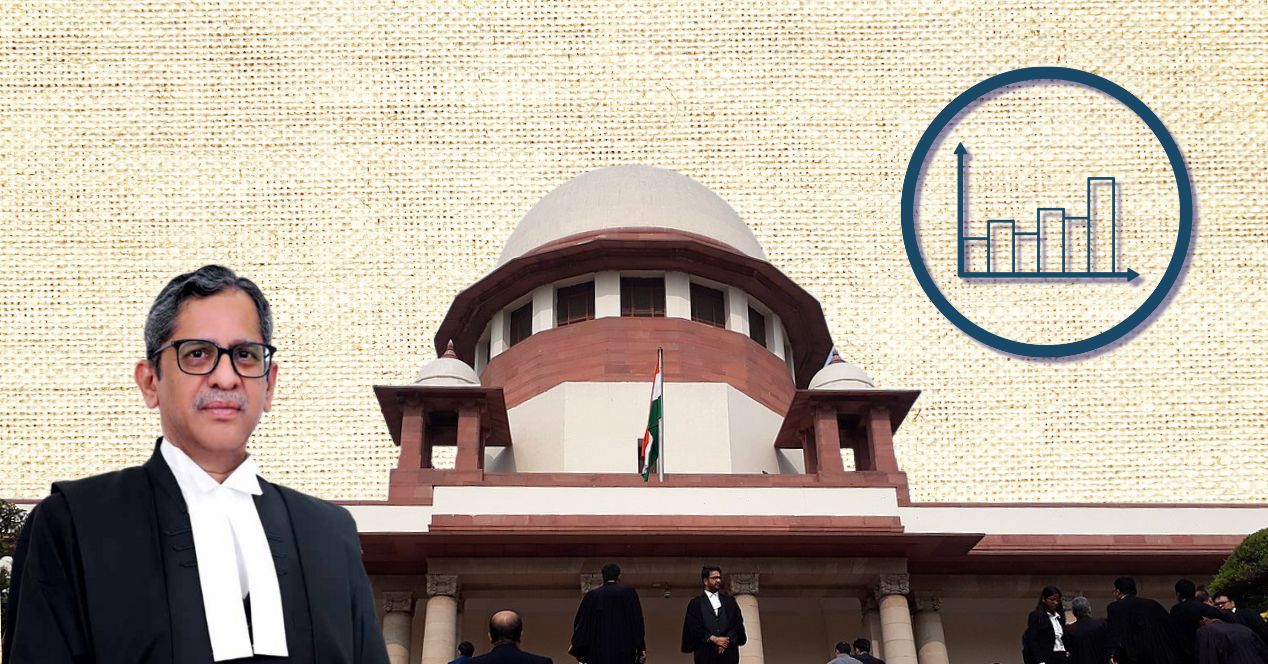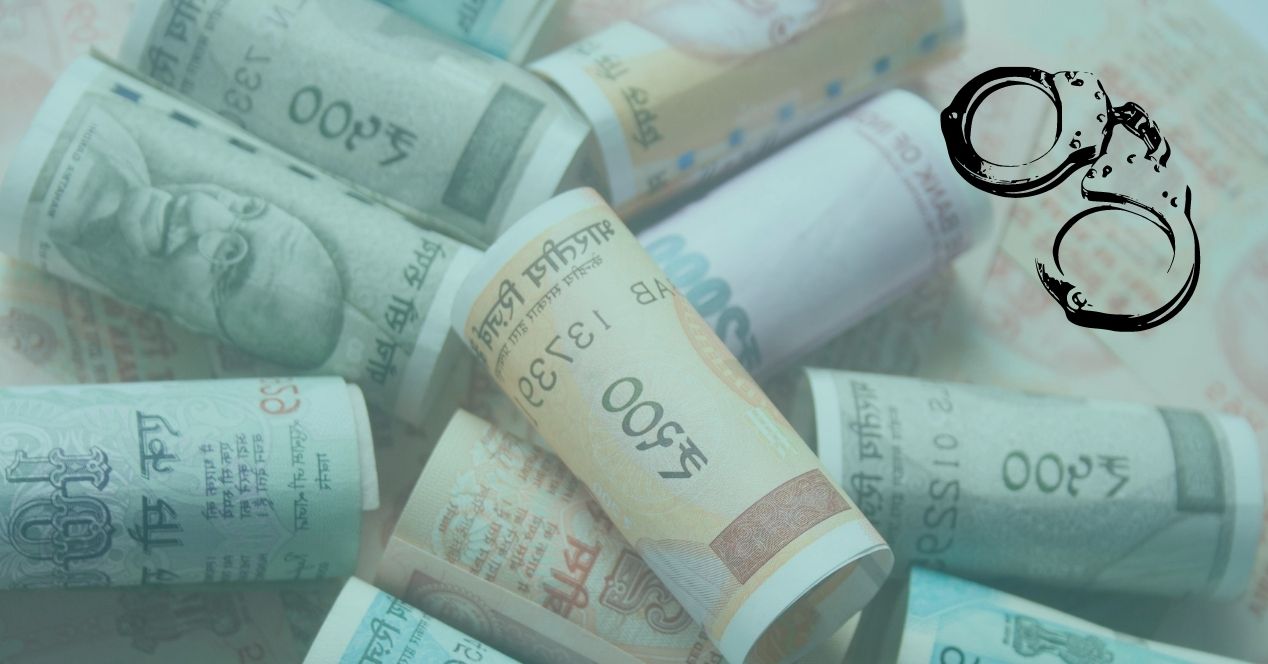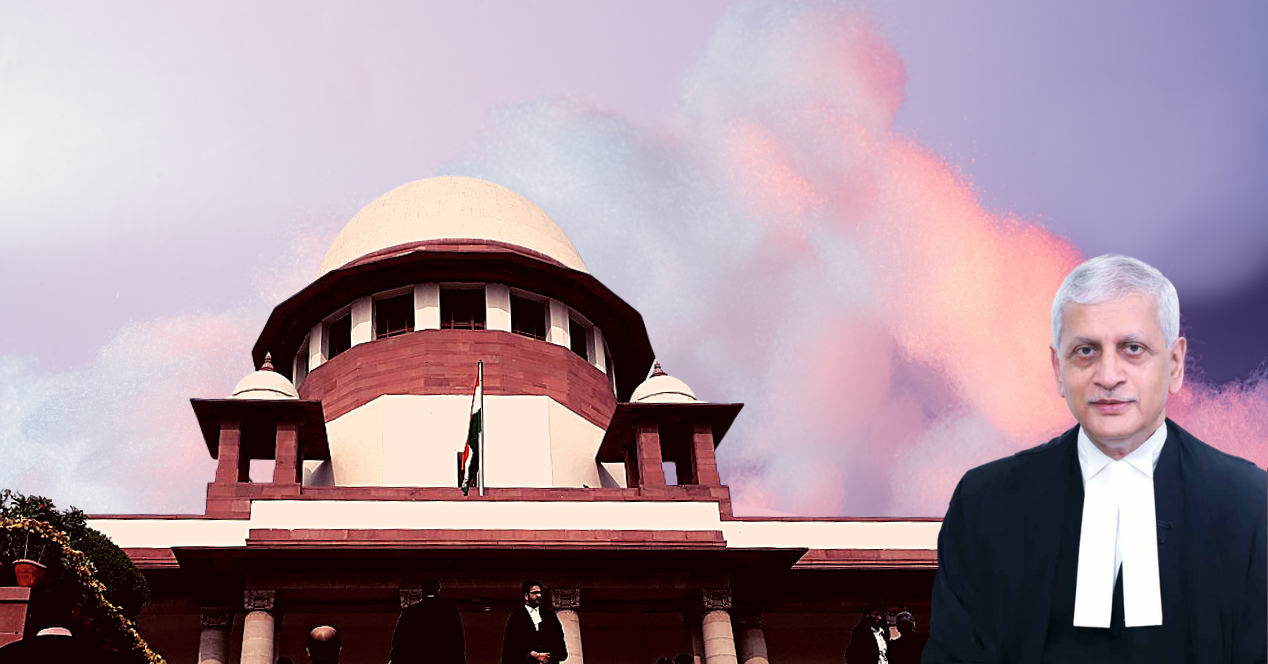Analysis
CJI Ramana’s Notable Judgments
What was the impact of CJI Ramana’s Judgments on the Court, the law and the country?
Chief Justices of the Supreme Court have been known to deliver a flurry of Judgments in closely watched constitutional cases on their way out. In the case of CJI N.V. Ramana, who retired today (August 26th), the situation is different.
The absence of many nationally important cases from the Court’s roster has been a defining feature of CJI Ramana’s 1.5 year tenure as Chief Justice. A Chief Justice is responsible not just for their own judicial output, but also, to a large extent, the performance of the Court under their leadership. As master of the roster, a Chief Justice decides which cases get heard at the Supreme Court and by which Judges.
CJI Ramana’s own record of delivering Judgments has been unremarkable throughout his 8.5 year tenure. On an average, he delivered 21 Judgments per year, a figure much lower than his contemporaries’ output. SCO conducted a quantitative analysis of CJI Ramana’s time at the Supreme Court here.
What was the qualitative impact of CJI Ramana’s Judgments on the Court, the law and the country? The short list of noteworthy Judgments and Orders he authored show a similar pattern: a tendency to stop short of seeing a case through to its logical end.
Transparency at the Supreme Court
In Central Public Information Officer v. Subhash Chandra Agarwal (2019), a 5-Judge Constitution Bench held that the office of the Chief Justice of India comes under the purview of the Right to Information Act, 2005. The Bench decided that the CJI’s office is a Public Authority as defined in the Act. This would make information on SC Judges and their assets, which had earlier been protected, publicly available.
In a concurring but separate Judgement, then Justice Ramana agreed with the majority Judgment. However, he added that the right to information should not be used as a ‘tool of surveillance’ hindering the effective functioning of the Judiciary.
Internet Shutdowns in Jammu and Kashmir
In January 2020, then Justice Ramana delivered a long Judgment, on behalf of a three-Judge Bench, on the internet ban in Jammu and Kashmir in Anuradha Bhasin v Union of India. The Judgment recognised that citizens have a fundamental right to access the internet, and that all restrictions on internet services must be proportionate and periodically reviewed.
Despite Justice Ramana’s lengthy discussion on internet rights, the Judgment did not actually restore internet in Jammu and Kashmir, leaving the decision up to the Union government.
The Union partially restored internet services in the State following the Judgment. The COVID-19 pandemic hit immediately after, and major parts of professional life, education and access to healthcare shifted online. The Foundation for Media Professionals (FMP) filed a petition seeking a complete restoration of internet services. Once again in May 2020, Justice Ramana reiterated the importance of measured internet restrictions, but left the final decision of restoration up to the government.
Pegasus Spyware Probe
A group of activists, politicians and journalists brought the Pegasus case to the Court in July 2021. They demanded an independent investigation into the Union government’s alleged use of the Israeli spyware to snoop on citizens. The Union took a clear stance from the very first day of hearings—it would answer no questions about Pegasus since divulging any information would breach national security.
Chief Justice Ramana pushed the government to merely inform the Court if it had used Pegasus, and, if so, under which law it derived the right to do so. The Union government submitted a scanty affidavit evading all questions, offering to set up its own investigative committee to probe the matter instead.
CJI Ramana delivered an Interim Order on October 27th 2021, underlining the chilling effect of illegal surveillance on free speech and chastising the government for its non-cooperation. To remedy the situation, the Court set up an Expert Committee to investigate the allegations. After many delays, the Committee submitted a sealed cover report to the Court in August 2022.
On his penultimate day in office, CJI Ramana opened the sealed cover. He read out that the Committee found malware in 5 of 29 examined phones, but was unable to conclusively say that the detected malware was Pegasus. Despite the petitioners’ vehement demands for the Committee Report to be placed in the public domain, CJI Ramana’s Order resealed the findings. Public analysis of the Committee’s methods and findings is currently impossible.
Constitutionality of Sedition
A 3-Judge Bench led by CJI Ramana took up the challenges to Section 124A of the Indian Penal Code, 1860, which criminalises sedition, in July 2021. In the early hearings, CJI Ramana appeared concerned about the widespread misuse of the law. He pondered about what place a colonial law had in the Indian democracy.
After months of inaction, the Bench began contemplating a 5-Judge Bench reference in the case in March 2022. While the Bench was at the cusp of a 5-Judge Bench reference, the Union government produced a surprising affidavit. In this affidavit, the Union claimed that the Prime Minister was keen to reconsider sedition law. The government communicated its plans to set up a committee to analyse the effect of a repeal or partial amendment and sought a pause in the SC hearings to actualise these plans.
The bearing of ongoing Supreme Court hearings on the government’s ability to set up a committee and reexamine the law is unclear. However, the Bench allowed the government’s request. Hearings remain paused indefinitely, until the Union reconsiders sedition law. CJI Ramana’s Interim Order effectively stayed the application of sedition law in the meantime, attempting to ensure that no convicts remain in jail on sedition charges while the law is under reconsideration.
Allowing Limited Review of the PMLA Judgment
On July 27th 2022, former SC Judge Justice A.M. Khanwilkar delivered a Judgment upholding a long list of challenged provisions of the Prevention of Money Laundering Act, 2002. The provisions give the Enforcement Directorate (ED) wide powers to investigate money laundering offences. The petitioners, many of whom are prominent opposition party leaders accused of money laundering, argued that the Act reduces the accused’s right to a fair trial to a ‘vanishing point’.
Karti Chidambaram filed a petition seeking a review of the PMLA Judgment on August 22nd 2022 August 2022. Three days later, a three-Judge Bench led by CJI Ramana allowed the review. The Order states the Bench’s inclination to restrict the review to two arguments. First, that the Judgment wrongly upheld the provision which enables the ED to continue an investigation and trial without providing the accused with the ECIR containing the charges against them. Second, that the Judgment wrongly upheld the many instances in which the PMLA reverses the burden of proof in criminal investigations, requiring the Bench to assume the accused person’s guilt.




